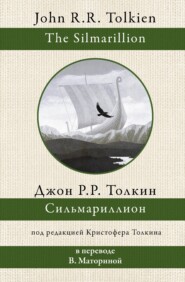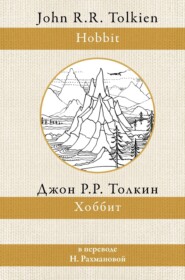По всем вопросам обращайтесь на: info@litportal.ru
(©) 2003-2024.
✖
The Silmarillion
Автор
Год написания книги
2018
Настройки чтения
Размер шрифта
Высота строк
Поля
Then suddenly Fëanor appeared in the city and called on all to come to the high court of the King upon the summit of Túna; but the doom of banishment that had been laid upon him was not yet lifted, and he rebelled against the Valar. A great multitude gathered swiftly, therefore, to hear what he would say; and the hill and all the stairs and streets that climbed upon it were lit with the light of many torches that each one bore in hand. Fëanor was a master of words, and his tongue had great power over hearts when he would use it; and that night he made a speech before the Noldor which they ever remembered. Fierce and fell were his words, and filled with anger and pride; and hearing them the Noldor were stirred to madness. His wrath and his hate were given most to Morgoth, and yet well nigh all that he said came from the very lies of Morgoth himself; but he was distraught with grief for the slaying of his father, and with anguish for the rape of the Silmarils. He claimed now the kingship of all the Noldor, since Finwë was dead, and he scorned the decrees of the Valar.
‘Why, O people of the Noldor,’ he cried, ‘why should we longer serve the jealous Valar, who cannot keep us nor even their own realm secure from their Enemy? And though he be now their foe, are not they and he of one kin? Vengeance calls me hence, but even were it otherwise I would not dwell longer in the same land with the kin of my father’s slayer and of the thief of my treasure. Yet I am not the only valiant in this valiant people. And have ye not all lost your King? And what else have ye not lost, cooped here in a narrow land between the mountains and the sea?
‘Here once was light, that the Valar begrudged to Middle-earth, but now dark levels all. Shall we mourn here deedless for ever, a shadow-folk, mist-haunting, dropping vain tears in the thankless sea? Or shall we return to our home? In Cuiviénen sweet ran the waters under unclouded stars, and wide lands lay about, where a free people might walk. There they lie still and await us who in our folly forsook them. Come away! Let the cowards keep this city!’
Long he spoke, and ever he urged the Noldor to follow him and by their own prowess to win freedom and great realms in the lands of the East, before it was too late; for he echoed the lies of Melkor, that the Valar had cozened them and would hold them captive so that Men might rule in Middle-earth. Many of the Eldar heard then for the first time of the Aftercomers. ‘Fair shall the end be,’ he cried, ‘though long and hard shall be the road! Say farewell to bondage! But say farewell also to ease! Say farewell to the weak! Say farewell to your treasures! More still shall we make. Journey light: but bring with you your swords! For we will go further than Oromë, endure longer than Tulkas: we will never turn back from pursuit. After Morgoth to the ends of the Earth! War shall he have and hatred undying. But when we have conquered and have regained the Silmarils, then we and we alone shall be lords of the unsullied Light, and masters of the bliss and beauty of Arda. No other race shall oust us!’
Then Fëanor swore a terrible oath. His seven sons leapt straightway to his side and took the selfsame vow together, and red as blood shone their drawn swords in the glare of the torches. They swore an oath which none shall break, and none should take, by the name even of Ilúvatar, calling the Everlasting Dark upon them if they kept it not; and Manwë they named in witness, and Varda, and the hallowed mountain of Taniquetil, vowing to pursue with vengeance and hatred to the ends of the World Vala, Demon, Elf or Man as yet unborn, or any creature, great or small, good or evil, that time should bring forth unto the end of days, whoso should hold or take or keep a Silmaril from their possession.
Thus spoke Maedhros and Maglor and Celegorm, Curufin and Caranthir, Amrod and Amras, princes of the Noldor; and many quailed to hear the dread words. For so sworn, good or evil, an oath may not be broken, and it shall pursue oathkeeper and oathbreaker to the world’s end. Fingolfin and Turgon his son therefore spoke against Fëanor, and fierce words awoke, so that once again wrath came near to the edge of swords. But Finarfin spoke softly, as was his wont, and sought to calm the Noldor, persuading them to pause and ponder ere deeds were done that could not be undone: and Orodreth, alone of his sons, spoke in like manner. Finrod was with Turgon, his friend; but Galadriel, the only woman of the Noldor to stand that day tall and valiant among the contending princes, was eager to be gone. No oaths she swore, but the words of Fëanor concerning Middle-earth had kindled in her heart, for she yearned to see the wide unguarded lands and to rule there a realm at her own will. Of like mind with Galadriel was Fingon Fingolfin’s son, being moved also by Fëanor’s words, though he loved him little; and with Fingon stood as they ever did Angrod and Aegnor, sons of Finarfin. But these held their peace and spoke not against their fathers.
Вы ознакомились с фрагментом книги.
Приобретайте полный текст книги у нашего партнера:
Приобретайте полный текст книги у нашего партнера:














